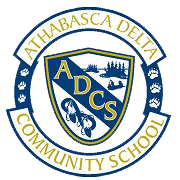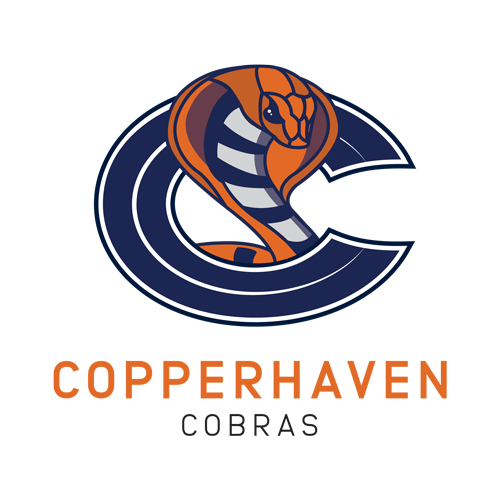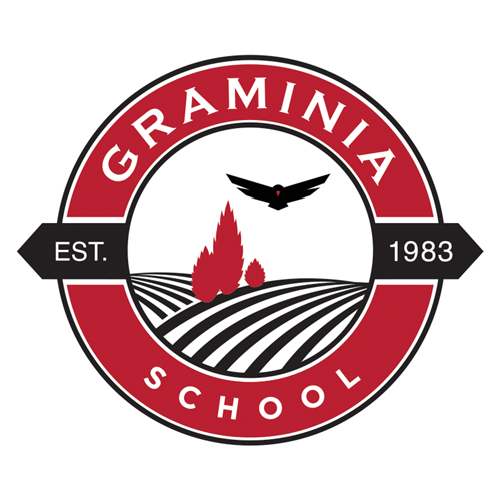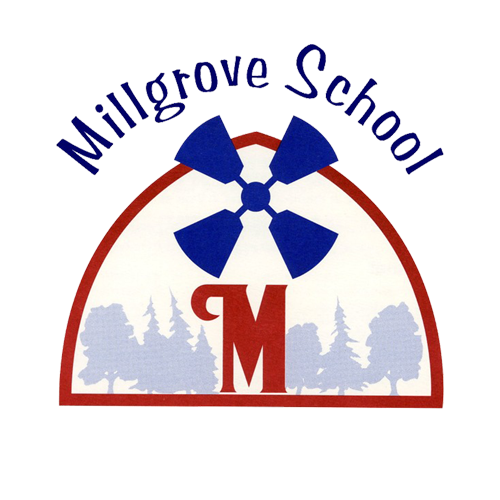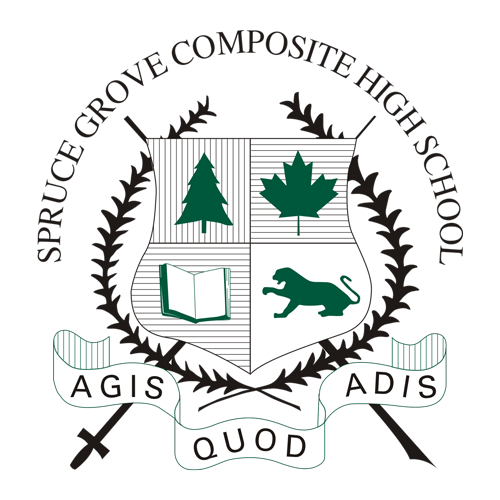AP 530: Procurement
Business & Finance
Background
The purpose of this Administrative Procedure is to ensure that procurement of goods and services provides the best value to the Division and is undertaken in an open, fair, ethical, and competitive manner while remaining in full compliance with legislation.
Definitions
a) Alberta Purchasing Connections (APC): shall refer to the online tool created by the Alberta government that lets public and private sector users manage, advertise, distribute, and download public purchasing opportunities for goods, services, and construction in Alberta.
b) Canadian- Europe Trade Agreement (CETA): shall refer to Canada's most comprehensive free trade agreement. It was negotiated between Canada and the European Union (comprised of 28-member countries). One important benefit of CETA is the elimination of tariffs taxes on international goods moving into a country.
c) Canadian Free Trade Agreement (CFTA): shall refer to the comprehensive agreement on Canadian internal trade which commits governments to a comprehensive set of rules that will help to achieve a modern and competitive economic union for all Canadians.
d) Canadian United Kingdom Trade Continuity Agreement (TCA): Shall refer to the Canada-United Kingdom Trade Continuity Agreement (Canada-UK TCA) came into force on April 1, 2021, and provides continuity, predictability and stability for trade between Canada and the United Kingdom (UK). It preserves the main benefits of CETA and Canada's competitive advantage in the UK market.
e) Conflict of Interest: shall refer to the process in which, when performing employment duties, employees can be or appear to be influenced to make a decision that benefits them personally.
f) Construction Services: shall include construction, reconstruction, demolition, repair, or renovation of a building, structure, or other civil engineering or architectural work and includes site preparation, excavation, the supply of products and materials, the supply of equipment and machinery if they are included in and incidental to the construction, and the installation and repair of fixtures of a building, structure, or other civil engineering or architectural work, but shall not include professional consulting services related to the construction contract unless they are included in the procurement.
g) Consultant: shall include a person or organization who provides services or expert advice in a particular area, such as construction, engineering, auditing, research, or banking, and is not typically considered an employee.
h) Contract: shall include those legally enforceable business agreements between two or more parties with mutual obligations. A contract may: define procurement of goods and services; define funds (revenue or grants) to be received from a third party; include memoranda of understanding (MOU) or letters of understanding (LOU); and/or have a zero, or null, dollar value. A contract is intended to define responsibilities (actions) or deliverables between the parties.
i) Goods: shall refer to tangible items generally sold or offered for sale in the commercial market place.
j) New West Partnership Trade Agreement (NWPTA): shall refer to the internal trade agreement that seeks to integrate the economies of three provinces and to remove barriers to trade, investment and labour mobility between British Columbia, Alberta, Saskatchewan and Manitoba.
k) Personal Services Contract: shall include those legal agreements, in which the skills or talents of an individual are material (i.e. professional services), between an individual employee and an employer that clarifies the terms and conditions of employment.
l) Preferred Vendor: shall mean the vendor that has been qualified through an open, fair, and transparent process and is deemed to represent the best value to the Division.
m) Procurement: shall refer to the act of finding, acquiring and buying goods, services, or works from an external source, often via a tendering or competitive bidding process to ensure the Division receives goods, services, or works for the best possible price, when aspects such as quality, quantity, time, and location are compared.
n) Purchase Order: shall refer to a buyer-generated document that authorizes a purchase transaction. A purchase order is a legally binding contract while a purchase requisition, which initiates the purchase order is for internal use only within PSD. For the purpose of this procedure, a purchase order shall additionally refer to the contract between Parkland School Division and a supplier for the purchase of goods and/or services at an agreed upon price, quantity, quality and delivery date and facilitates payment to a supplier.
o) Request for Proposal (RFP): shall refer to an official bidding process where documents with statement of work are posted on APC.
p) Services: shall refer to labour related tasks performed by an individual or company that does not result in the Division receiving a product that is tangible, durable or consumable in nature.
q) Sole Source: shall refer to any contract entered into without a competitive process, based on justification that only one known source exists or the only one single supplier can fulfill the requirements.
r) Standing Offer Agreement: shall refer to an agreement under which a competitive bid process has occurred by the Division, the government, or a buying group the Division belongs to that allows purchasing of specified goods or services at a predetermine price for a certain period of time. There is no need for sole source exception requirement as these qualify as a competitive bid.
s) Supplier: shall refer to the sole proprietorship, partnership, corporation, or other legal entity that offers construction, consulting, goods and services or information technology for sale.
t) United States-Mexico-Canada Agreement (USMCA): shall refer to the 21st century, high standard trade agreement: supporting mutually beneficial trade resulting in freer markets, fairer trade, and robust economic growth in North America.
Code of Ethics
1. Employees who undertake purchasing activities on behalf of the Division must do so with integrity, accountability, transparency and with the utmost consideration for the responsible spending of public dollars.
2. Division business shall be conducted, with all current and prospective suppliers/vendors, in good faith.
3. Employees shall not use their authority or office for personal gain (incentive packages, rebates or free gifts) while engaging in purchasing activities on behalf of the Division.
4. Employees shall not purchase equipment, service or goods intended for Division purposes using a personal credit card in attempt to earn promotional or travel points or other benefits.
5. Should an employee hold a personal or financial interest, which may be reasonably deemed by others to impinge on the employee’s impartiality (conflict of interest) in any matter relevant to their duties, that conflict shall be declared to their immediate supervisor.
General Guidelines
6. This administrative procedure is for all Division purchases of goods and services, including school generated funds.
7. The Division shall seek maximum value for expended funds.
8. Consideration should be given to the supplier’s reputation and experience, the ability to deliver or perform within the time specified, and the ability to provide after sales maintenance and service. Past experience on previous orders may also be considered.
9. The Division shall abide by provincial and federal legislation, including:
9.1. The Canadian Free Trade Agreement (CFTA)
9.2. The New West Partnership Trade Agreement (NWPTA) including NWPTA thresholds
9.2.1. $75,000 or greater for goods;
9.2.2. $75,000 or greater for services; and
9.2.3. $200,000 for construction.
9.3. Canada-Europe Trade Agreement (CETA)
9.4. United States-Mexico-Canada Agreement (USMCA)
9.5. Canadian United Kingdom Trade Continuity Agreement (TCA)
10. To the extent that is reasonable, efficient and consistent with school-based management philosophy, the Division supports the concept of centralized purchasing to service the needs of schools and individual sites in the Division.
11. All items purchased with Division funds shall become the property of the Division.
12. All purchases must be approved by an appropriate signing authority.
13. Authority levels must not exceed the maximum values as identified by the Signing Authority Matrix – Schedule 539A.
14. Splitting or dividing the purchase of goods and services in order to avoid exceeding the authorized limits is prohibited.
15. Prior to authorizing an expenditure, the approving authority shall confirm that:
15.1. Sufficient funds remain within the relevant budget to fund the purchase;
15.2. The purchase is necessary and appropriate; and
15.3. The requirements of this Administrative Procedure have been followed.
16. If a contract or standing offer exists with a supplier who can supply the required goods or services, then these goods and/or services shall be ordered from the contracted supplier.
17. Procurement Department shall be contacted to initiate the Request for Proposal, Request for Quote or Request for Tender.
With respect to purchasing guidelines:
18. The purchase of goods and services with an estimated total cost exceeding:
18.1. $5,000 but less than $25,000, requires two or more telephone (document details), Web Advertisement Quote, email solicitations or other available pricing confirmation from potential suppliers where possible and practical;
18.2. $25,000 but less than $75,000, requires written quotations from a minimum of three potential suppliers where possible and practical; and
18.3. $75,000 and above requires a formal competitive bidding process such as a Request for Proposal (RFP), Request for Quote (RFQ) or Request for Tender (RFT).
19. Construction projects with an estimated total cost exceeding:
19.1. $10,000 but less than $50,000, require two or more telephone or email solicitations or other relevant pricing confirmation from potential suppliers where possible and practical;
19.2. $50,000 but less than $200,000, requires written quotations from a minimum of three potential suppliers where possible and practical;
19.3. $200,000 requires a formal competitive bidding process such as a Request for Proposal (RFP) or a Request for Quote (RFQ) or Request for Tender (RFT).
20. Purchases exceeding NWPTA thresholds (18.3 and 19.3) are required to be electronically posted on the Alberta Purchasing Connection [APC].
With respect to other purchasing considerations:
21. Purchases greater than $10,000 shall be made through the purchasing department as they require a Purchase Order unless an exception is granted by the Superintendent, Associate Superintendent of Corporate Supports and Services or the procurement department.
22. Capital projects, such as playgrounds or building enhancements, shall be coordinated and approved by the Director of Facilities.
23. Purchasing of goods such as furniture, fixtures and equipment that result in physical changes to the Division buildings or facilities, requires the approval of Director of Facilities.
24. Purchases involving the acquisition of furniture, appliances and technology including communication technologies, shall meet Information Technology Services requirements and shall be procured through Central Purchasing. These purchases may include but not limited to:
24.1. Computers, tablets or peripheral supporting technology,
24.2. Servers and other Technological Equipment,
24.3. Projectors,
24.4. Gym audio equipment,
24.5. Cell phones,
24.6. Software including web subscriptions and mobile apps,
24.7. Photocopiers,
24.8. Furniture, and/or
24.9. Appliances
25. The purchase of new computer software or computer hardware may require a privacy impact assessment.
26. Student transportation services, school and other Division owned vehicles, shall be coordinated by the Director of Transportation Services.
27. Personal purchases on the Division purchasing cards are not permitted;
27.1. If a personal charge does occur, the employee shall provide payment by cash or cheque to the Division immediately; and
27.2. Repeated occurrences may result in the card being terminated, disciplinary action and possible termination.
28. Employees shall not purchase cash gift cards and non-cash gifts or awards without prior approval of a supervisor.
29. Supervisors shall provide Financial Services (Payroll) with the list of all gift card recipients and amounts of the gift cards through the Gift Card Declaration Form; notably
29.1. Cash or near cash gift cards shall not be given to PSD employees if they were purchased using Division funds (This includes all PSD employees including employees from other sites than the one providing the gift cards).
29.1.1. For clarity, near cash gift card and awards are gifts that can be easily converted into cash (e.g. a gift card to Cineplex where the employee can use it to purchase whatever merchandise or service the store offers);
29.1.2. Cash or near cash gift cards and awards may be considered a taxable benefit for the recipient.
29.2. Gift cards at or less than $25 are permissible, and may be purchased with division funds, as a thank you to volunteers or awards for students, but shall not be provided to any PSD staff, regardless of reason.
29.2.1. Gift cards may only be given to PSD employees if the gift cards were purchased with staff funds within a staff fund school generated project.
29.3. All gift cards and recipients shall be recorded within the Division’s Gift Card Declaration Form.
29.4. Non-cash gifts or awards, previously approved by a supervisor for an employee, shall not exceed a combined value of $500 annually (e.g. Cineplex movie tickets that can be used for a movie).
29.5. If the fair market value (not the cost) of the gifts and awards given to employees is greater than $500, the amount over $500 must be included in the employee’s income.
29.6. Supervisors shall provide Financial Services (Payroll) with the list of employees who received non-cash gifts or awards with values exceeding $500 annually.
30. Violation tickets issued to any company vehicle driven by a Division employee are considered a personal purchase and must be paid by the employee who was operating the Division owned vehicle at the time of the infraction.
31. All alcoholic beverages are considered personal purchases unless an exemption has been previously approved by the Board of Trustees or the Superintendent.
32. Any suspected fraudulent purchasing activities may result in severe consequences up to and including termination.
With respect to co-operative procurements:
33. Where appropriate, the Division may leverage working collaboratively with other boards and, where applicable, other public sector agencies, to develop co-operatives and shared services in order to aggregate demand to achieve economies of scale.
34. Where the Division is involved in such activities, procurements are to be made according to the procedures of the co-operative group, which may not be identical to that of the Division but shall be consistent with this Administrative Procedure.
35. Where appropriate, the Division may also leverage its internal buying power by aggregating similar purchases across various departments, schools, etc. in order to achieve economies of scale and create contracts offering greater benefits accessible to the entire Division.
With respect to sole sourcing:
36. The Division will employ an open, competitive process when required and whenever possible, to increase chances of achieving the greatest value for money. However, certain purchases may qualify for a sole source procurement. These purchases will be treated as an exception to the competitive procurement requirements of this procedure provided they are not used to avoid competition, discriminate between suppliers or protect suppliers of the Division. They are approved by the Superintendent and/or Associate Superintendent of Corporate Supports and Services under the following conditions:
Exceptions for Procurements (within the NWPTA thresholds) are those:
36.1. From philanthropic institutions or persons with disabilities;
36.2. From a public body or non-profit organization;
36.3. Of services, or goods or services in respect of construction, purchased for representational or promotional services outside of Alberta;
36.4. Of health services and social services;
36.5. On behalf of an entity not covered by the NWPTA;
36.6. By entities which operate sporting or convention facilities, in order to respect a commercial agreement;
36.7. Where it can be demonstrated that only one supplier is able to meet the requirements of a procurement;
36.8. Where an unforeseeable situation of urgency exists and the services, or the goods or services or construction could not be obtained in time by means of open procurement procedures;
36.9. When the acquisition is of a confidential or privileged nature and disclosure through an open bidding process could reasonably be expected to compromise government confidentiality, cause economic disruption or be contrary to the public interest;
36.10. Of services provided by lawyers and notaries;
36.11. Of goods intended or resale to the public;
36.12. In the absence of a receipt or any bids in response to a call for tenders;
36.13. Of treasury services (services relating to borrowing, lending, investing or holding money, or other property);
Additional exceptions only applicable to Procurements (below the NWPTA thresholds) are those:
36.14. Where it is the original manufacturer or provider; or the only local distributor for the original manufacturer or provider, or where no other local distributors exist;
36.15. For parts or equipment not interchangeable with similar parts of another manufacturer;
36.16. Where there is only a sole provider of items compatible with existing equipment, inventory, systems, programs, or services;
36.17. Where there is only a sole provider of factory-authorized warranty service;
36.18. In emergency situations; or
36.19. For legal services and recruitment.
With respect to competitive process guidelines:
37. Competitive bidding (tender) specifications shall be developed by the site supervisor, in consultation with Procurement Lead.
38. All competitive bidding solicitations must indicate:
38.1. The date and time after which bids will no longer be accepted; and
38.2. The place where bids are to be delivered.
39. All bids must be date and time stamped upon receipt and must not be opened until the specified closing time.
40. Any bid received after the closing date and time shall be returned unopened to the originator unless stated otherwise in the RFP.
With respect to contracts:
41. Prior to entering into any contractual arrangements, respective signing authority shall fill out the Parkland School Division Contract Approval Form and shall ensure all of the following criteria have been met:
41.1. The contract is in the best interests of the Division;
41.2. Appropriate consultation has occurred with Division departments and/or schools which have an interest in the contract;
41.3. The contract has been reviewed from both a financial and a resources perspective by the appropriate authorities;
41.4. The contract is operationally feasible;
41.5. The contract is in accordance with any legislative or regulatory requirements, such as policies, guidelines, collective agreements, or other obligations of the Division;
41.6. There is no conflict of interest; and
41.7. Provision has been made for adequate indemnity, insurance and risk management plans, and other appropriate protections.
42. Contracts shall be executed under the legal name of The Board of Trustees of Parkland School Division. A site reference may be added, if required.
43. The following contracts, in particular, shall be reviewed and approved by the Associate Superintendent, Corporate Services and Supports or Superintendent:
43.1. Contracts containing activities that could result in significant direct or indirect physical harm or other injury to a person, property, or environment, or impact negatively on the Division’s reputation.
44. Once a contract has been approved and signed, Division staff administering the contractual arrangement shall ensure the Division and other contracting parties meet their respective obligations under the contract.
45. All executed original copies of contracts shall be filed centrally with the Procurement Lead.
With respect to proper documentation:
46. All purchases must be supported by an invoice or receipt that includes the following:
46.1. Name and address of the vendor;
46.2. GST number and GST amount, if applicable;
46.3. Quantity, cost and description of individual supplies and services purchased; and
46.4. Terms of payment, if applicable.
47. Documents that are insufficient include:
47.1. Vendor statements;
47.2. Purchasing card or credit card slips that are not accompanied by a detailed receipt or invoice;
47.3. Hotel invoices that contain room service charges without providing necessary details; and
47.4. Documentation that is too vague to support the purchase.
48. The expenditure authority (i.e. Principal or designate of the school or site) making the purchase will ensure documents are properly coded, appropriately authorized and submitted to Financial Services for payment within a reasonable time.
With respect to purchasing cards documentation:
49. When possible, purchases are to be done through the Visa Purchasing Card program.
50. Access to the Visa Purchasing Card Guidebook shall be made internally available.
51. Visa expenditures shall require appropriate receipt submission including:
51.1. Itemized receipts that clearly detail the expenditure:
51.1.1. All receipts shall be provided; and
51.1.2. Packing Slips shall not be considered as receipts.
51.2. Itemized meal receipts shall show the items purchased, and additionally demonstrate:
51.2.1. The names of individuals attending the meal, and
51.2.2. The purpose of the meeting requiring the meal.
With respect to lost receipts:
52. Before filling out a Lost Receipt Declaration Form, the employee shall make every attempt possible to obtain a replacement receipt.
53. In rare cases where the replacement receipt is not available, the employee shall fill out a Lost Receipt Declaration Form that is signed by the employee and Site Supervisors (e.g. Principal/Director).
54. It is at the Site Supervisor’s discretion as to whether they will accept the lost receipt declaration or require the employee to reimburse the Division for these expenditures.
With respect to exceptions:
55. Exceptions to this Administration Procedure may be granted by the Associate Superintendent, Corporate Support and Services or the Superintendent.

